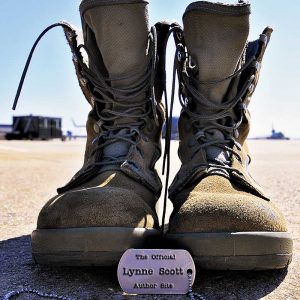In the last three weeks, I have been asked to read four different things for friends. I’m generally happy to do so. Lord knows that plenty of people help me out, so I’m happy to do the same. However, after returning two books without getting past the opening chapters, I find that I need to establish some guidelines just to prevent any misunderstanding between myself and the person asking me to read. I truly do care about your writing and I want to be supportive, but I have to step back from certain subjects.
There are certain things that I simply WILL NOT read.
There have always been things that I chose not to read. Everyone has their likes and dislikes. I’ve tried reading most everything at one time or another, and learned what works for me and what doesn’t. Some of it is genre, some of it is story, and some of it is location.
Genre –
I’ll read almost any genre. I’m not nuts about pure romance or historical romance, but I don’t hate it and will do it for friends and family.
Supernatural – I really, really, really don’t like zombies – except the ones in Shaun of the Dead. Don’t send me your zombie book.
Religion – No snake handling and I’m creeped out by Voodoo and those guys that ripped out hearts in the second Indiana Jones movie. Not my thing. Don’t send me that stuff.
Location
I don’t really care to read stories set in:
Africa – I don’t mind North Africa. I actually like stuff set in Egypt, but I don’t like stuff set in South Africa or the Congo, and with the exception of Tarzan, I’m not into jungle settings.
South America – and definitely nothing in the Amazon. Giant freaking snakes and spiders are an absolute no-go. I couldn’t watch large chunks of the second Harry Potter movie with all those spiders.
Some areas of Europe & Russia: Sweden/Finland/Norway/Siberia – it’s all the freaking snow and unpronounceable names – don’t judge. Albania/Bulgaria – Maybe I read/saw too many 50s cold war stories and these two places always freaked me out.
Story:
I won’t read books where the primary story line is about:
Crimes Against Children – NO! NO! NO! Don’t send it to me – even if it’s free I won’t look.
Sex Crimes – I’m not reading an entire story (either fiction or non-fiction) about some poor person’s assault no matter how well written.
Human Trafficking – It horrifies me. I will not spend time with it.
Animal Abuse – I don’t need to read an entire story about taking down a dog fighting operation.
Reptiles – Don’t be trying to get me to read Anaconda.
Don’t misunderstand – all authors touch on these things. I don’t mind if the bad guy is known to do these things. I don’t mind if an author has a victim of one of these thing. I do mind if the entire damn book is about one of these themes. I don’t want to read pages of history about the crime and what the police are now doing to stop it. I don’t want to read a book (no matter how compelling the writing) where the entire story is about some hero who is saving some poor woman from being a sex slave or attends ten dog fights so he can save all the dogs. Nobility isn’t enough for me to read about these things. I DO NOT want to dwell on the above subjects. Please DO NOT ask me or be hurt by my refusal to play.
If anything, an author should be thrilled that I’m not critiquing or commenting on something I already have a negative attitude about. Trust me, I’m not that freaking objective.
Yes, I do understand that the true stories written by some of the survivors of the above events are excellent and even uplifting. There are at least ten books out there about the Ariel Castro case and I admire and respect the authors and the survivors who are telling their stories, but I can’t read about those horrors. Those things make my heart hurt.
If you’re reading this blog then you’ve probably read my books. I touch on a lot of these subjects in my stories, but I never dwell on them. I don’t write in depth about any one of these things, and I have never made them the sole focus of a book and never will.
I’m not offended when someone tells me they don’t care to read my vampire books. I get it. There are too many great novels filled with stories we do want to read to be willing to spend any time on subjects that are a turn off. Choose wisely and enjoy what you read. By the same token please don’t be offended when I chose not to read your book about one of the above.
Thanks for understanding and respecting my choices as I respect yours. Yes, I still want to be friends.

